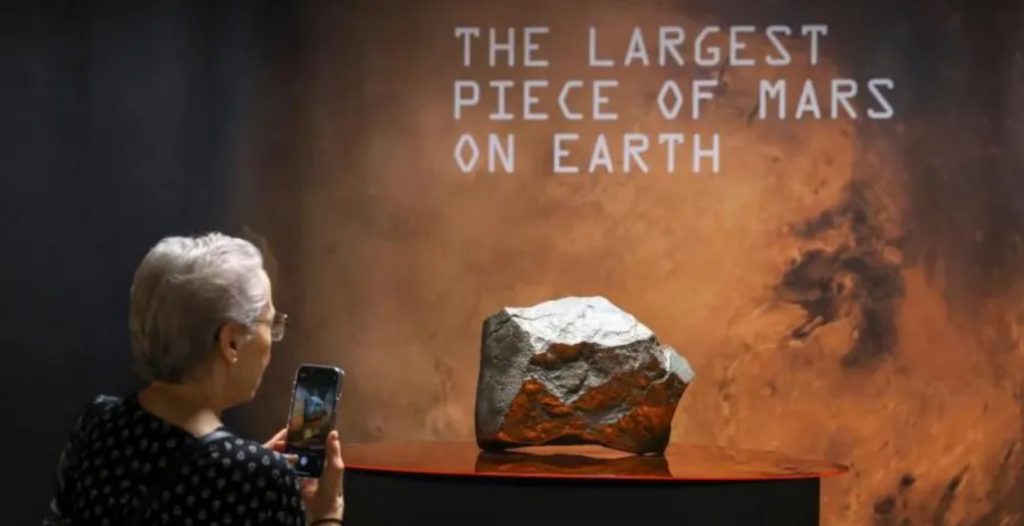A rare meteorite from Mars, discovered two years ago in Niger’s Sahara Desert, has sparked an international dispute after being sold for $4.3 million (£3.2m) at Sotheby’s in New York. The 24.7kg rock, scientifically named NWA 16788, is the largest Martian meteorite ever found on Earth. Its sale has raised questions about how it left Niger and whether the country’s heritage laws were breached.
Niger’s government has launched an investigation, expressing “doubts about the legality of its export” and concerns over potential illicit trafficking. While Sotheby’s insists all procedures were followed and documentation was in order, Niger has no specific legislation on meteorites though its 1997 heritage law protects “mineralogical specimens.”
The meteorite was reportedly discovered on 16 November 2023 in the Agadez region, 90km west of the Chirfa Oasis, by an unidentified “meteorite hunter.” According to an Italian academic paper, it was sold locally to an international dealer and later transferred to a private gallery in Arezzo, Italy. Before its New York sale, it was displayed in Italy, including at the Italian Space Agency. Two slices remain in Italy for research.
Prof. Paul Sereno, a University of Chicago palaeontologist with deep ties to Niger, condemned the sale, calling it a relic of “colonial times” when valuable artefacts were taken abroad without consent. He argues that meteorites, like cultural artefacts, are part of a nation’s heritage and should be preserved locally—Niger is planning a national museum to showcase such treasures.
The Sahara has become a hotbed for meteorite hunting due to its preservation-friendly climate. Morocco, which has faced similar issues, has tried to regulate the trade, but many valuable finds still leave the country. Prof. Hasnaa Chennaoui Aoudjehane, a Moroccan geologist, says the loss of extraterrestrial material is a shared problem across North Africa.
For Niger, the case could be a turning point, pressuring authorities to tighten laws and potentially pushing for the meteorite’s return. As Prof. Sereno notes, any future public display of NWA 16788 will carry the shadow of Niger’s contest over its rightful ownership.
This dispute highlights a broader challenge balancing the scientific and commercial value of meteorites with the rights of nations where they are found.

